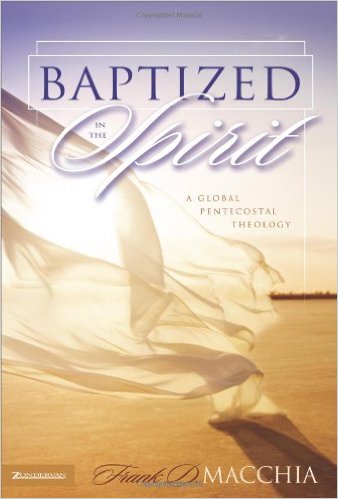 Chapter Six: The Spirit-Baptized Life
Chapter Six: The Spirit-Baptized Life
Macchia’s final chapter provides his overarching definition of the Baptism with the Holy Spirit: it is a baptism into divine love (258). Indeed, the climatic section of the whole work is “Spirit Baptism as Love’s ‘Second Coversion’” (280).
All of the fractures that have plagued the Pentecostal theology of Spirit baptism can be healed ultimately by an understanding of love as the substance of life in the Spirit, love that fills us to overflowing as a purgative, empowering, eschatological gift of communion and new life (260, emended slightly).
In Spirit-baptism God does not simply give us something or some spiritual gift or benefit; God gives himself. Spirit-baptism is God’s self-gift as all-embracing love. The transcendent God is also personal and communicative. Just as the God of Jesus Christ gave without reservation in the incarnation, so at Pentecost God has given all that God is.
The God of Pentecost self-imparts in abundance and limitless expanse in witness to Christ, reaching out to all flesh in forces of liberation, reconciliation, and communion. What is self-imparted is divine love, a love that bears all things, including our sin, sorrow, and death. The God of Spirit baptism is the “crucified God” (262).
Macchia makes the implications of this quite clear:
The self-giving God of Spirit baptism produces a self-giving people in mission. The God who seeks to save the lost produces a people who do the same. To love God is to be shaped by that love so as to share its affections and passions (264).
The love which shapes the life of the Spirit-baptised includes both love for God and love for others. Perhaps pre-eminently, it is a transforming experience of the love that God has for us: “the love of God is poured out into our hearts by the Holy Spirit” (Romans 5:5)—a verse cited by Macchia more often than any other, including Matthew 12:28, 1 Corinthians 12:13, Acts 1:8 or Acts 2:4.
This focus on Spirit-baptism in terms of divine love can save the Pentecostal church from forms of triumphalism that neglect the reality of suffering and the necessity of solidarity with and ministry on behalf of those who suffer. The power with which the church is endued is the power of love manifest and made known in the suffering love of Christ. “Spirit baptism as an experience of empowerment is not just renewed energy to do things for God. It is rather the power of self-transcending, self-giving love” (281). The tongues of Pentecost were “a broken speech for a broken body of Christ till perfection comes” (281). Understood in terms of love, Spirit-baptism can become an ongoing and repeated experience in which believers are caught up ever and again into the love of God. If this understanding is correct, then Spirit-baptism may also function as a continual source of renewal for the church.